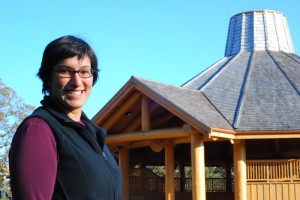Celebrating its 20th year at Camosun College, Aboriginal Education and Community Connections (formerly First Nations Education) plays a large role in ensuring a successful future for aboriginal students at the college.
The resource centre offers support for students who are in aboriginal studies. “When I walk into this office, I feel like I’m walking into a friendly home” says Trevor Bach, a student in the indigenous studies program.
The centre, which started in 1991, has expanded from serving 100 students to accommodating the needs of over 1,000.

“We are simply growing and growing,” says student advisor Suzanne Wilkinson. “It’s in part because of our population boom and in part because, collectively, our communities are realizing how important postsecondary education is for getting what you want out of life.”
Wilkinson says that another reason aboriginal studies are growing is because society is moving further away from the past negative experiences of education that have impacted aboriginal people.
“More and more, our people and our communities are having positive experiences with education, and they are passing that along to their families,” she says. “My hope is that we have graduation rates that are on par with the non-aboriginal rates, and beyond.”
Camosun supports aboriginal studies in its strategic plan and the college is working to build a strong foundation to strengthen the future of education for aboriginal people.
“The college over the years has been really committed to the work we’re doing,” says Sandee Mitchell, program leader, student services. “There have been many years when our numbers have been really low in our programs, and the college hasn’t put us on the cutting block. They’ve supported us, so I give a lot of credit to Camosun.”
Aboriginal Education and Community Connections has continued to have a vision for success and growth, helping aboriginal students through their postsecondary journey.
“We have a philosophy that we all adhere to, and our philosophy is that we’re here to serve students,” says Mitchell. “We’re here to make life better for aboriginal students who are studying here, we’re here to support and hold up students who journey through the college.”
